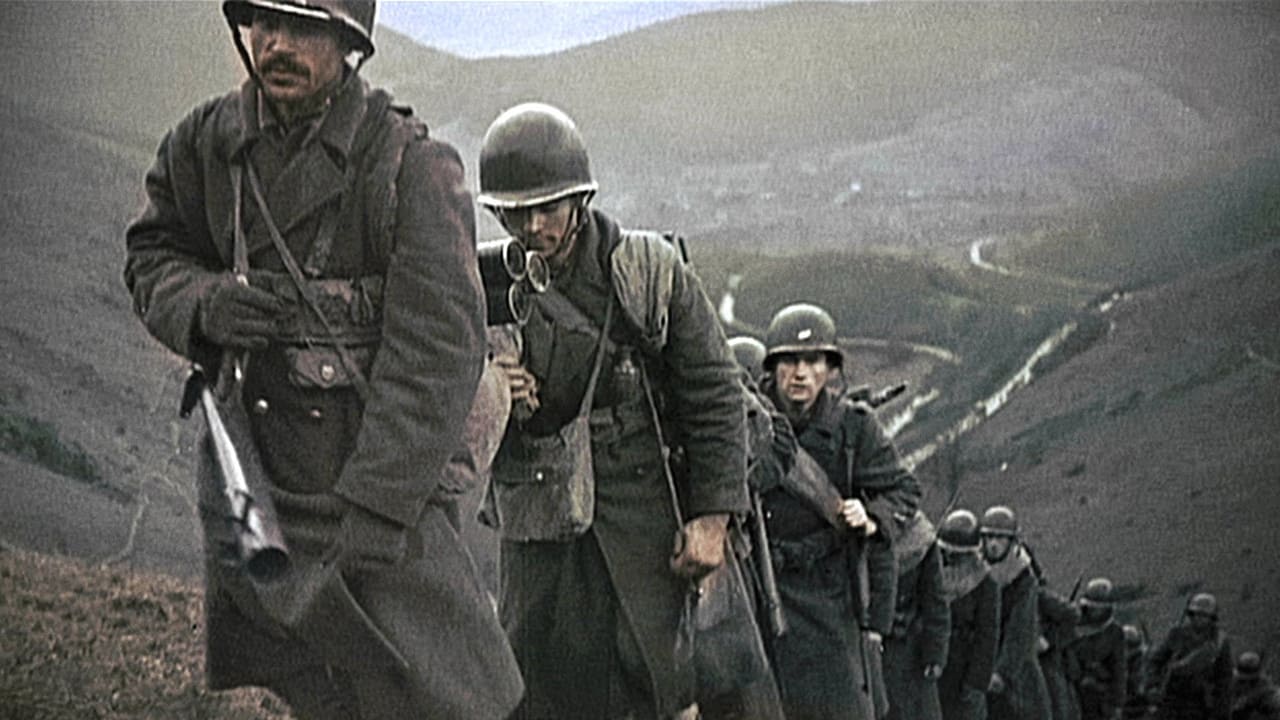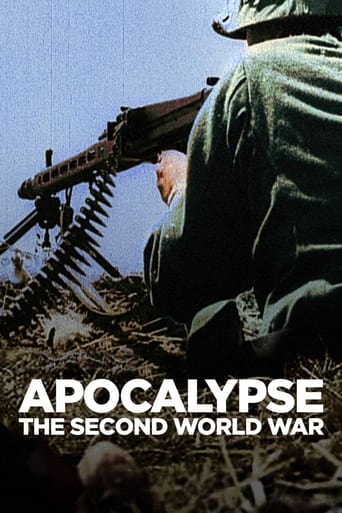

Disappointment for a huge fan!
... View MorePretty good movie overall. First half was nothing special but it got better as it went along.
... View MoreEntertaining from beginning to end, it maintains the spirit of the franchise while establishing it's own seal with a fun cast
... View MoreOne of the best movies of the year! Incredible from the beginning to the end.
... View MoreThe footage is extremely nice quality and not to mentioned with colors and everything. Sadly it has been made widescreen which means some of the footage has been cut off, rather than just preserving the 4:3 aspect ratio.That aside, it's also a very informative documentary that manages to explain World War 2 pretty well despite just being 6 episodes. It may focus a lot on Europe but it still comes around the other theaters well.However it's also blatantly obviously biased. I'm not a Nazi or communists but the documentary was obviously anti-soviet/Stalinist and didn't really maintain a very neutral look at the war, which documentaries should if you ask me. Non of the actions committed by Germans that are shown in the documentary is anything but "pure evil" and non of the western allies ever did anything wrong. A good example is the utter destruction of Germany just being seen as an absolute necessity from the documentaries point of view without putting the slightest critique towards the actions committed by the Allies. Every German soldier portrayed in the documentary is meant to look as evil and barbaric as possible.The documentary even manages to sneak in the ridiculous claims about Germans making lampshades of human skin, shrinking heads and whatnot.But this is what you can expect from documentaries like this, I suppose. I mainly just watched it for the nice visuals.
... View MoreThe second world war ensured tons of documentaries. The information about this topic is overwhelming, but of course you don't want to watch every documentary ever made. But if you don't have a clue where to start, or if you just want a very nice summery of the second world war, then this documentary is a must see in my opinion.The documentary shows the development of the second world war in a chronological and interesting way. It is narrated from a very objective point of view and therefore the educational level is very high. And the amount of topics is very broad, so you get introduced with every aspect of this heinous period. Due this fact you can orientate what you find interesting and you can search for more documentaries about specific topics later.The capture my opinion in a short sentence: "Please watch this amazing documentary"!
... View MoreI take exception to the statements that this is the greatest WW2 documentary ever made. It's a fairly standard history from a French viewpoint, with the additional gimmick of being colorized. Yes, colorized, not "restored," as the original was never in color in the first place. Some of the footage is new, but most has appeared in previous documentaries.Black & white footage is not easily colorized, and can often appear fake, even surrealistic. So, while it sometimes works, making certain scenes more vivid and realistic, it often works counter to its purpose.Much of the new footage has not appeared previously for a reason: it is extremely disturbing. Dead and decaying bodies abound. This is a war documentary and so is perfectly appropriate, but I would not allow small children to watch.The commentary avoids controversy by being rather simplistic. WW2 Buffs will learn nothing new. I was impressed however, by the statement in one of the episodes, that the French communists didn't begin resisting the German occupation until after the invasion of the Soviet Union, a full year after the fall of France. This statement of course is absolutely true, but it couldn't have made the French leftists very happy.In all, I would recommend this to WW2 and modern history buffs, only for the new footage, and to see what can and can't be done with colorization. However, for general viewers looking for a solid introduction to the war, I would recommend "World at War." For those sad souls who cannot watch b&w footage, there are series for the US, Great Britain, Japan and the Anzacs, all showing original, not colorized, color footage.
... View MoreI recently viewed this 6 part series on WWII and I was literally captivated. It aired on TV5 (French speaking network) twice and I finally managed to view all 6 episodes. The war is explained in detail with actual footage filmed by all sides in the conflict. The films are enhanced (coloured) and restored making them even more actual. The conflicts In North Africa, in the Pacific and in Europe are all explained with maps and troop movements. The hardship and suffering of the populations and soldiers are seen and felt by the viewer.From the beginning of the German-Russian Nonaggression Pact to the surrender of Japan, all steps of the war are explained and shown with unbelievable detail. The complete DVD set is available but only in Europe for Zone 2 and Pal TV. However I think it should be made available everywhere, and all school children old enough to understand, should be shown this documentary.
... View More